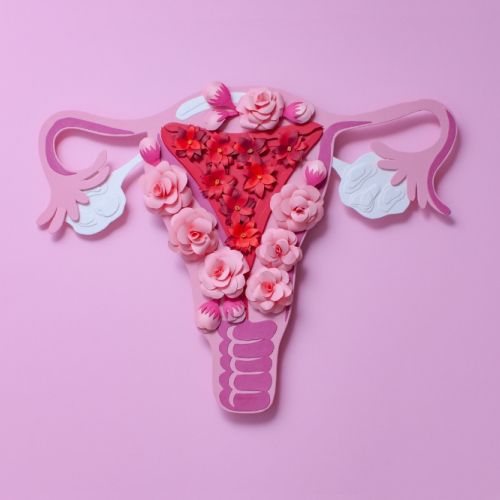What Is Unexplained Infertility and What Are the Treatment Options?

Infertility is a condition in which a couple can’t conceive after 12 months of regular, unprotected sex. Infertility has many possible causes, including medical conditions in the woman, man, or both partners. However, the cause of infertility is sometimes said to be unexplained, which means testing uncovers no medical problems in either partner.
Unexplained infertility can be terribly frustrating. However, even without a diagnosis, couples with unexplained infertility who undergo treatment may be able to have children.
The caring specialists at California Center for Reproductive Health help couples with various types of infertility, including unexplained infertility, become parents. Read on to learn more about unexplained infertility and the treatment options available.
About unexplained infertility
Infertility is a common medical condition. According to RESOLVE, the National Infertility Association, 1 in 8 couples have trouble getting pregnant or sustaining a pregnancy.
When a couple can’t get pregnant, they undergo a series of tests looking for what may be causing their infertility. A couple receives a diagnosis of unexplained infertility when no cause can be found.
It’s a myth that infertility is primarily due to medical problems in the woman. In fact, about one-third of infertility is attributed to the female partner, one-third is attributed to the male partner, and one-third is either unexplained or caused by a combination of problems in both partners.
Treatment for unexplained infertility
You may think unexplained infertility can’t be treated because there’s no known problem to fix. However, assisted reproductive technology (ART) such as the following may help bring about pregnancy even when the cause is unknown:
Fertility drugs
Medication can sometimes bring about pregnancy in cases of unexplained infertility. For example, women may be prescribed clomiphene citrate or other drugs that stimulate hormones and trigger ovulation.
Intrauterine insemination (IUI)
IUI is a procedure in which a man’s sperm is “washed” and placed directly in a woman’s vagina or uterus during ovulation. IUI may be used alone or in conjunction with fertility drugs.
In vitro fertilization (IVF)
During IVF, a woman’s eggs and a man’s sperm are retrieved from their bodies and brought together for fertilization in a laboratory. Once fertilized, the egg or eggs are transferred to the woman’s uterus.
IVF, which can use eggs and sperm from the couple or from donors, is the most effective form of ART.
Help for unexplained infertility
At California Center for Reproductive Health, we offer couples the most advanced infertility care. Our caring team provides a full range of diagnostic and treatment services. Our goal is to help you have the family of your dreams.
To find out how we can help you, call your nearest Los Angeles-area clinic in Encino, West Hollywood, Santa Monica, or Valencia, California, or use the easy online tool to schedule a visit with one of our specialists.
Eliran Mor, MD
Reproductive Endocrinologist located in Encino, Valencia & West Hollywood, CA
FAQ
What does a reproductive endocrinologist and infertility specialist do?
Reproductive endocrinology and Infertility is a sub-specialty of Obstetrics and Gynecology. In addition to managing medical and surgical treatment of disorders of the female reproductive tract, reproductive endocrinologist and infertility (REI) specialists undergo additional years of training to provide fertility treatments using assisted reproductive technology (ART) such as in vitro fertilization.
Reproductive endocrinologists receive board certification by the American Board of Obstetrics and Gynecology in both Obstetrics and Gynecology and Reproductive Endocrinology and Infertility.
When should I see an REI specialist?
In general, patients should consider consulting with an REI specialist after one year of trying unsuccessfully to achieve pregnancy. The chance of conceiving every month is around 20%, therefore after a full year of trying approximately 15% of couples will still not have achieved a pregnancy.
However, if a woman is over the age of 35 it would be reasonable to see a fertility specialist earlier, typically after 6 months of trying.
Other candidates to seek earlier treatment are women who have irregular menses, endometriosis, fibroids, polycystic ovary syndrome (PCOS), women who have had 2 or more miscarriages, or problems with the fallopian tubes (prior ectopic pregnancy).
What are the reasons we are having trouble conceiving?
Approximately 1/3 of the time cause for infertility is a female factor, 1/3 of the time a male factor, and the remaining 1/3 a couples’ factor.
At CCRH, we emphasize the importance of establishing a correct diagnosis. Both partners undergo a comprehensive evaluation including a medical history and physical exam.
Furthremore, the woman’s ovarian reserve is assessed with a pelvic ultrasound and a hormonal profile. A hysterosalpingogram (HSG) will confirm fallopian tube patency and the uterine cavity is free of intracavitary lesions. A semen analysis is also obtained to evaluate for concentration, motility, and morphology of the sperm.
Additional work up is then individualized to direct the best possible treatment option for each couple.
What is IVF? What is the process like?
In vitro fertilization (IVF) is the process that involves fertilization of an egg outside of a woman’s body.
The process starts with fertility drugs prescribed to help stimulate egg development. In your natural cycle, your body is only able to grow one dominant egg, but with stimulation medication we can recruit multiple eggs to continue to grow. After about 8-10 days of stimulation, the eggs are surgically retrieved and then fertilized with sperm in a specialized laboratory. Fertilized eggs are then cultured under a strictly controlled environment within specialized incubators in the IVF laboratory for 3-5 days while they develop as embryos. Finally, embryos (or an embryo) are transferred into the uterine cavity for implantation.
Should I have IVF?
Before deciding if IVF is the right choice, it’s important to sit down with an REI specialist to discuss available treatment options. For some people, other methods such as fertility drugs, intrauterine insemination (IUI) may be the best first choice treatment. At CCRH, we believe each individual couple is unique and not everyone needs IVF.
Is the IVF procedure painful?
While not painful, the fertility medications may some side effects including headaches, hot flashes, mood swings, and bloating. The injection sites may also bruise.
Will IVF guarantee a baby?
Unfortunately, no. Many people think once they start IVF it’s a matter of time that they will be pregnant and have a baby. But according to national statistics per the Society of Assisted Reproduction (SART), on average 40% of assisted reproduction cycles achieve live births in women under age 35. The chances of success then continue to decrease with advancing age.
At CCRH, we employ only evidence-based interventions to ensure patient safety and optimal outcome. While we cannot guarantee a baby, we guarantee that you will receive the best, most advanced, personalized care to help you maximize your chance of a baby.
What is the success rate for IVF?
The average IVF success rate (success measured in live birth rate) using one’s own eggs begins to drop around age 35 and then rapidly after age 40. This is due to the decline in egg quantity and egg quality as a woman ages.
Our clinic’s success rate consistently beats the national average year after year.
Do insurance plans cover infertility treatment? How much does IVF cost?
Individual insurance plans often do not have any coverage for infertility treatments. If you have a group plan, you can call members services to see if they have coverage for infertility (including consultation/workup and IVF).
After your consultation with our REI specialist, one of our dedicated account managers with sit with you to go over the cost of treatment.




